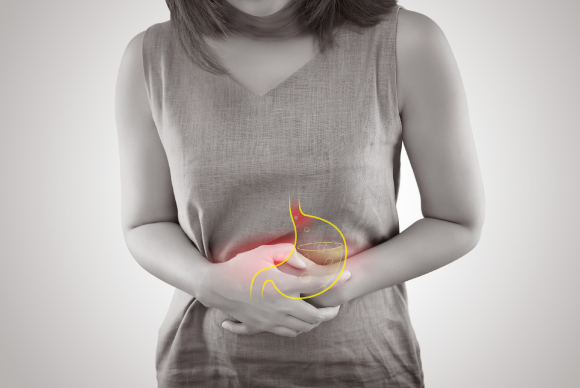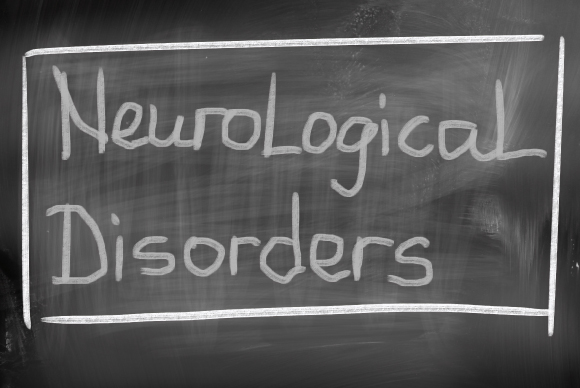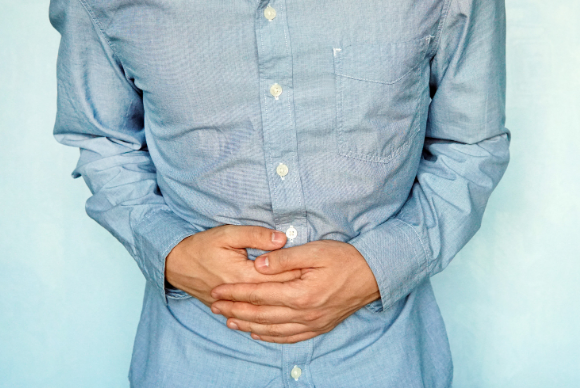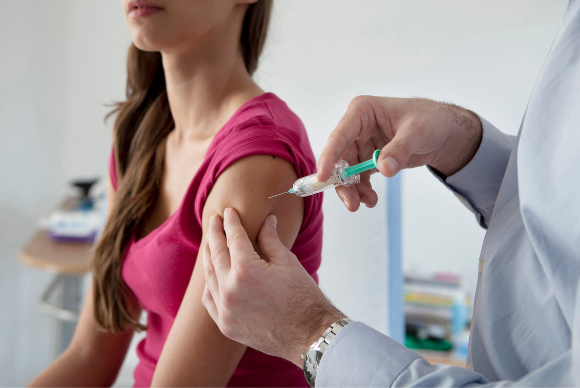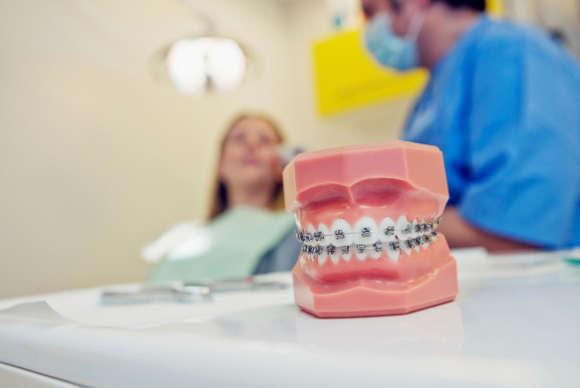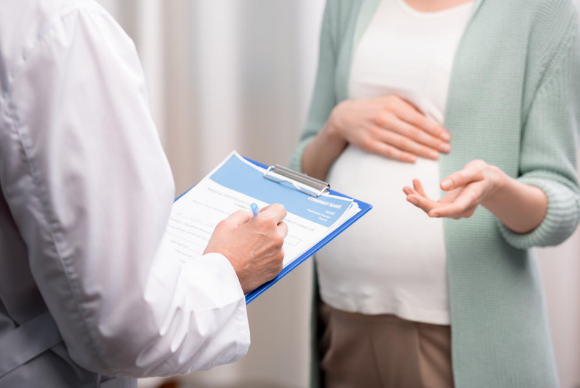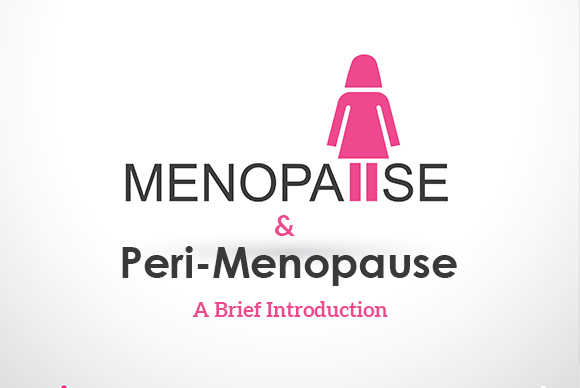GERD – A Brief Introduction
You surely must have felt acidity burps from time to time. It happens due to the backflow of the stomach acid into the digestive tract. It is not uncommon for people to experience, once in a while as it is quite natural and needs no treatment to resolve it. But when it becomes chronic, it’s medically termed as GERD. It an acronym for gastroesophageal reflux disease. It is crucial to seek treatment for the same form an expert gastroenterologist on time to mitigate the risk of having any complications arising from it. Let’s have a look at it, in brief.
What is GERD?
It is a digestive disease that affects the muscle of the lower portion of the esophagus that leads towards the stomach. Under normal condition, the Lowest Esophageal Sphincter (LES) connects the esophagus to the stomach and passes the food forwards. In the case of GERD, this LES is either very weak or function abnormally, causing the backflow.
It pushes the contents of the stomach towards the upper esophagus. It can lead to persistent heartburn and acid indigestion, if left untreated.
What are the Symptoms of GERD?
The particular symptoms might vary from person to person, but some of the most common symptoms are as follows-
- Heartburn, that is the presence of burning sensation in the chest (which might worsen at night or after meals)
- Difficulty swallowing, even if you are intaking easily palatable food
- Chest pain, which is otherwise unexplainable
- Chronic cough or presence of cough at the back of the mouth,
- Regurgitation of sour liquid in the mouth
- The sensation of a lump in the throat
- On setting of asthma, or worsening of asthma
- Disrupted sleep cycle, persistently
Presence of 3 or more of these symptoms should be checked by gastroenterologist to see if it is due to GERD.
Risk Factors of GERD
Though anyone gets diagnosed with GERD, there are certain risk factors associated with it. Risk factors are any aspect that enhances the chances of any disease. Some of the most common risk factors for GERD are as follows.
- Weakened lower esophageal sphincter
- Obesity or prolonged overweight
- Pregnancy
- Hiatal hernia (a bulge protruding from the stomach into diaphragm)
- Routinely staying hungry for long
There are certainly other factors that aggravate the GRED. These include
- Chain smoking, particularly over a longer period
- Eating much larger meals (which leads to more secretion of digestive enzymes)
- Eating very late at night
- Persistently taking certain medications like aspirin
- Drinking certain beverages, like alcohol, coffee or other caffeine-loaded drinks
- Eating a certain kind of food, like highly processed, or fried food.
If you have 3 or more of the above-mentioned risk factors, you should watch out for the symptoms, in case they ever happen.
What is the best Treatment for GERD?
The everyday discomfort of GERD can be managed effectively with over the counter drugs and lifestyle change. However, in case hiatal hernia is the reason for the GERD, hernia surgery is needed to resolve the hernia, which also helps to resolve GERD.
5 Most Common Neurological Disorders You Should Know
Neurological diseases are disorders of the central and peripheral nervous system. It includes the organs, namely, the brain, spinal cord, and autonomic nervous system, along with cranial and peripheral nerves. It can also include nerve roots, neuromuscular junction, and muscles in these regions. It requires extensive diagnosis and treatment from specialist neurologists.
Neurological disorders include a wide range of illness such as Epilepsy, Severe Headache, Parkinson’s Disease, Spinal Cord Tumor, Brain Tumors, Memory Disorders, Multiple Sclerosis, Stroke and many more.
Today, let’s list a few of them in details.
1. Dementia and Alzheimer’s
It is the condition in which the person loses the ability to think or recollect things on a regular basis. It imparts the memory and often can be seen as an inevitable process of old age. It also includes symptoms like language difficulties and change in behavior. This can lead to agitation, delusions, aggression that may also lead to emotional outbursts. In severe cases, the person might need help even for day to day activities like bathing and eating, etc.
2. Parkinson’s Disease
It is a group of disorders that affect the motor senses in the body. It projects symptoms like trembling of body parts like hands, legs, arms, face, and jaw. It can also lead to stiffness of limbs and posture instability, imbalance and lack of coordination while making movements. Parkinson’s Disease can onset after the age of 50, but it might happen to people even before that, depending upon case to case. Unfortunately, it is not possible to treat them completely, but it can be managed effectively with proper medicines and support.
3. Epilepsy
This is yet another type of neurological disorder that is caused by abnormally high electrical impulse into the brain. As a result, the body starts to have seizures. Seizures can be characterized by involuntary and abnormal, vibration-like movement of the body. The magnitude of such seizure can vary from minor, mild to major, thus the range of its treatment varies as well. It requires proper training of the family members for minor episodes, along with the promptness to avail treatment.
4. Stroke
Stroke is a severe condition that occurs when the blood vessels supplying oxygenated blood to the brain, bursts or gets clogged in between. As the brain gets starved of the oxygen and nutrients, it can undergo some severe damage and thus considered as a medical emergency and need intensive care at the earliest. Even after the critical hours as passed, it is crucial to undergo follow up to evaluate the cause of stroke and ensure a full recovery.
5. Multiple Sclerosis
This neurological disease counts as an autoimmune disease which damages the outer layer of the nerve cells. While this outer, protective layer gets damaged, it leads to nerve impairment and in turn, leads to several other diseases. Its treatment options include medicines to suppress the immune system and manage the symptom.
For these and more neurological condition, seek appointment from our neurologists at ILS Hospitals on time.
4 Common Gastrointestinal Diseases That You Should Be Aware Of
We all come across articles with catchy titles like ‘best food for weight loss’, ‘worst food during pregnancy’, and so on, isn’t it! Indeed the food we eat determines many health factors for us. However, sometimes the passage of food, the digestive tract, itself gets inflicted with many diseases. In fact, the number of gastrointestinal conditions is on a rise since the past few decades. Let’s take a look at some of the most common ones of them.
Gastrointestinal conditions are the diseases that originate in any or more of the organs of the GI tract and its accessory organs. It includes the esophagus, stomach, gallbladder, liver, pancreas small and large intestine, colon and rectum. A good Gastroenterologist can offer extensive treatment of the same.
Some of the most common GI conditions are as follows.
1. GERD (Gastroesophageal reflux disease)
Acidity, reflux and heartburn are some most commonly experienced symptoms related to digestion. GERD is the severe form of such acid reflux. It is characteristic by regular acid reflux, often with a sour or bitter taste in the mouth. GERD might be a result of underlying hiatal hernia (for which hernia treatment must be sought immediately) and moreover, untreated GERD can severely harm the esophagus, so it is advised to address it on time.
2. Gallstones
Gallstones is yet another most common GI condition. Gallstones are solidified, crystalline substance that occurs inside the gallbladder. Its size may vary from small granular to big golf ball sized. It causes tremendous pain and can be eased with medicines. However, it is crucial to note that gallstones are mostly impossible to cure with medicine, and it can only be treated permanently with gallstone operation.
3. Gastroenteritis
This is a pathogen infection of the GI tract, which can include, bacteria, virus and parasites. It brings multiple symptoms at once, such as vomiting, diarrhea, headache and also fever. Usually, it is known as common stomach flu. The mild flu can be managed easily with adequate rest, plenty of water and minerals and mild over-the-counter drugs. But it might need some medical treatment, if the symptoms persist for long, or if it triggers again and again. However, these are easily spread and measures should be taken to avoid the possibility.
4. Peptic Ulcers
Unhealthy diet, lifestyle and excessive use of certain medicines can deteriorate the inner membrane of the stomach and expose it to the digestive acids. This results in ulcers and causes several digestive complications, if left unresolved. It often cannot resolve on its own, as the ulcers stay exposed to the enzymes persistently. Thus, its timely treatment is quite important and so is making certain changes in the diet and lifestyle.
There are several other GI conditions as well which need to be treated effectively. At ILS Hospitals, we offer extensive diagnosis treatment for a wide range of GI conditions.
Risks Of Untreated Clinical Depression And Why You Should Seek Help In Time
We all have experienced depression from time to time and thankfully, we often are able to come out of it with our will and little help from friends and family. But the term clinical depression is something can that needs extensive medical treatment from an expert psychiatrist. Let’s check out the risks of the same if it is left untreated.
1. Suicide
The most feared risk of untreated depression is suicide. It includes having suicidal thought as well. Many individuals start looking for ways to end their life, or might also picture them carrying it out too. Though being involved in violence is somewhat rare, severely depressed individuals can cause harm to others as well, if they are provoked or evoked.
2. Self Injury
Several individuals engage in self-injury in order to cope with their depression. It includes hitting head on the walls or hard surfaces, burning, clawing, skinning, cutting or ingesting some toxic substance. In such cases, even when some individual is not actually considering suicide, these harmful activities can result in severe injury or even death, accidentally.
3. Addiction
It is not uncommon to find people drink or smoke or even take drugs to cope up with their depression. For clinical depression, this addiction becomes even worse. Such individuals try to subdue their consciousness with substance abuse. This, in turn, can bring many medical threats to them. In many cases, its overuse has been found to lead towards death and deterioration of health.
4. Poor Performance
As depression makes people drenched out of energy, make them unable to focus or even perform the capability, it is almost inevitable to find its result in everyday life. Let it be academic or workplace performance, the results often are too poor as compared to normal.
5. Reckless Behavior
Depression might make people let their guards down, as they are not certain they want a better tomorrow. These individuals might engage in action without considering their consequences. It includes reckless driving, doing dangerous recreational activities, etc.
6. Relationship Issues
Depression deteriorates personal relations the most. It causes rifts, fights, hopelessness in a relationship and affects their family’s mental health as well. For married people, it can lead to even separation or divorce. When such individuals also have children, it dis-balance their growth and emotional health drastically.
7. Poor Health
Depression leads to many health complications, some directly and some indirectly. For instance, insomnia and fatigue directly result from depression and long term depression can give rise to weight gain, high cholesterol and other complications.
Can Depression Be Cured With Timely Treatment
Thankfully, yes! Treatment for depression includes sessions with expert psychiatrists, group session, medicines and shock treatment in severe cases.
On behalf of ILS Hospitals, we would like every individual to evaluate their mental health once in a while, just like they do for their physical health. Remember, the depression is just a phase that can be overcome with help, modern medicines are more than capable of resolving it for good if it is availed at the right time.
A Brief Introduction About Cervical Cancer Vaccination
Cervical cancer is the second most common form of cancer in women in India, after breast cancer. Cervical cancer refers to the malignancy found in the cervix (the lowermost portion of the uterus) of the reproduction system in women. Though cervical cancer affects older women of age 50 or above the most, many gynecologists confirm that women with the same have been diagnosed in their early 30s as well. Let’s understand regarding many of its aspects in details along with cervical cancer vaccination.
Cervical cancer might project no symptoms at first, but the advanced stages often show some symptoms such as vaginal discharge with blood or strong smell, bleeding in postmenopausal women or during times other than on periods, pelvic pain and so on. Though these symptoms might indicate some mild infections as well, it is always wise to get it checked to rule out the possibility of cervical cancer.
Cervical cancer occurs due to Human Papillomavirus Infection (HPI). It can be prevented effectively with the HPV vaccine. It usually takes 2 to 3 shots to complete the dosage. It is usually advised for young girls of age group 9-15, but can also be recommended to women reaching until the age of 25 or even more. A thorough consultation is advised to consider the same with an expert gynecologist, in depth.
Cervical cancer vaccination is not fully effective for women above the age of 25, particularly if they are already sexually active (It is true for even the younger girls). The reason being, the vaccination loses its effectiveness as women grow older, and moreover being engaged in sex, might already have exposed them to the infection, makes will make the vaccine considerably. However, the HPV vaccine can help prevent many other diseases of the reproductive tract as well.
Cervical cancer vaccination offers protection malignancy in the cervical region. But as HPV virus also can cause cancer in the vulva and vagina, this vaccination protects the women against these as well along with genital warts.
However, there are other measures that can help with early detection of cervical cancer too. Pap smear is a screening that collects sample cells from the cervical cavity. It is then evaluated under a microscope. In case they exhibit any changes in their structure, it might be indicating cancer and thus, timely treatment options can be availed for it.
HPV vaccination is effective and safe. The only side effects that have been found in some cases are pain, swelling, and redness in the site of the injection. However, these are mild and temporary and overall, its advantages surpass the mild discomfort.
ILS Hospitals offers HPV vaccination to fight cervical cancer effectively. We urge parents of every young girl to seek consultation with an experienced gynecologist to consider HPV vaccination for their daughters to have a cervical cancer-free life ahead. For women who are older are also advised to take proper measure to mitigate the possibility of cervical cancer in their future.
8 Most Common Orthodontics Conditions To Watch Out For
‘A smile can often fix many difficult situations’. We are all familiar with this phrase. However, there are many threats that loom over this perfect smile of yours. Of course, the germs, cavity, and plaque built up deteriorate your dental health, but some misalignment can also hamper your perfect smile too.
Today, we are going to present some most common orthodontics conditions, but before that, we will explain what is orthodontics, in brief. Orthodontics is a special branch of dentistry that deals with fixing malalignments of teeth, whether it is due to defect or injury.
Crowding Of Teeth
It occurs when there is not enough room for all the teeth. This arises when the jaw is either underdeveloped or is just a little small as compared to the teeth. As a result, the teeth overlap one another and can cause some dental problem as it becomes tricky to clean them thoroughly.
Spaced Teeth
This is just the opposite of the previous condition. In this, the jaw is rather big as compared to the space needed by the teeth. It can cause food particles to stuck in between and also often happens to be unattractive to look.
Overbite
Usually, the upper plate is usually protruded over the lower one. However it became a problem, if this protrusion is too steep as compared to normal skeletal build, an orthodontic condition, we call it as an overbite. It causes difficulty in chewing in extreme cases.
Under-bite
This is just the opposite of the previous case. Under-bite refers to the arrangement when the lower jaw protrudes over the upper jaw. It affects the overall facial look and might add some difficulties in chewing.
Cross-bite
This is a combination of the previous 2 conditions. In this, some of the teeth are aligned as overbite while some are aligned as under-bite. It might give a rather unnatural look to the dental plate and might lead to some dental conditions.
Open Bite
In this condition, the teeth of the upper and lower jaws do not meet one another. It makes chewing a much difficult task, which often adds excessive pressure to the other teeth. It might happen due to persistent thumb suckling as a child.
Hypodontia
This is a case when one or more teeth naturally do not form and leads to extra spacing in the palate. If only a couple of teeth are missing, it can be easily fixed with braces, which spreads them out evenly.
Hyperdentia
This is just the opposite of the previous condition, in which there are one or more extra teeth than ideally supposed to be. If it does not cause any dental difficulty, It might be left untreated, but otherwise, it often needs to be surgically removed.
These conditions can be addressed effectively with the treatment from expert orthodontics. It might be okay to live with them if its severity is minor and posses no discomfit or trouble. However, in many cases, untreated orthodontics can lead to premature wearing of teeth and dental trauma, and speech difficulty. It is also crucial to note that orthodontics treatment is most effective when they are availed at an early age. However, it is never too late to resolve a health condition.
5 Useful Tips For A Healthy Motherhood Ahead
Mother is someone who holds us in her belly for 9 months, in her arms for three years and in her heart for a lifetime.
These few words are truest to its sense. Indeed there is no one like a mother. And today, we are going to offer a few useful tips as offered by leading gynecologists of ILS Hospitals, a renowned hospital in Kolkata, which will help you to have a safe pregnancy and childbirth ahead.
1. Reassure The Baby’s Heath
Get the primary test and prenatal scanning to ensure that your baby is doing good. Your prenatal scan tells much more about your pregnancy that you might realize. It reassures the pregnancy, number of babies you are expecting and a possible due date as well. Avail a baby scan from the best maternity hospital or a clinic with an expert gynecologist.
2. Eat Right At Right Time
Eating nutritious food is quite important during pregnancy. Not only you should be eating more, but you have to focus on consuming all the crucial nutrients as well. An expert gynecologist or obstetrician will guide you towards having an ideal diet chart for a healthy mother and child. Apart from a prenatal supplement, eat lots of fresh fruits and veggies, but remember to avoid the ones that are bad for your pregnancy (like papaya).
3. Stay Hydrated
You must be aware that pregnancy makes you ‘pee for two’. However, it is crucial that you drink for two as well. Staying hydrated will help keep your amniotic fluid in balance and also help you deal with nausea and morning sickness. Always keep a bottle of water you and keep taking sips every now and then. You can also consider having fresh juices and coconut water etc, to help intake more water.
4. Remove Few Things From Diet Chart
If you are engaged in bad habits like alcohol, smoking, etc, pregnancy might be the right motivation for you to quit it (and for your partner’s too). The harmful toxin of these, not only affect your health but your baby’s health as well. Moreover, try to limit the amount of caffeine you intake as well, as it too can cause some complication in your pregnancy.
5. Educate Yourself And Others
During pregnancy, you are never alone and you are not alone, going through it. So, consider joining a prenatal class. They offer several helpful tips on pregnancy, childbirth, nursing, and early parenting. Moreover, such help groups can offer assistance in more than one way.
We urge every budding mother and her family to take special care of her along with her baby’s. We, at ILS Hospitals, offer the best medical assistance and care for the expecting mother with our expert gynecologist and obstetricians. Moreover, we are also ready with neonatologist and pediatrician to take care of the infants, if they need it.
How Pregnancy Makes Hernia A Likely Possibility In The Future
Pregnancy is joyous news for every parent-to-be. However, it might bring several complications, either during pregnancy or after childbirth. Being in touch with best maternity hospitals will ensure that you can deal with these complications, effectively. However, some complications such as hernia can surface at any point in time, during or even after pregnancy period. Before understanding their connection, let’s understand what a hernia is.
What Is A Hernia?
A hernia is a medical condition in which a portion of the intestine or internal tissue pushes through the outer membrane. This can happen to any individual, however, there are many risks facts that makes its occurrence more likely. These risk factors include previous surgery or injury, previous hernia, pregnancy, obesity, and many others. Though hernia is not life-threatening in its early stages, it can lead to a severe complication, if it is left untreated for long.
How Pregnancy And Hernia Are Related
A hernia can lead to extra pressure built up in the abdomen, which is inevitable during pregnancy. Thus, there is always some chances of developing hernia for women during pregnancy. The protruded belly button during pregnancy mostly resolves after childbirth. However, many a time, it stills stays protruded as a warning sign of a hernia in the near future.
Though even a single pregnancy is a risk factor of hernia, the chances increase with multiple babies, as twins, triplet or more will, obviously exert more abdominal pressure. Moreover, having multiple pregnancies uplift the chances of hernia, particularity if the previous baby was born with the help of cesarean delivery.
Many a time, a hernia can bulge during labor as well. It is particularly true for a natural birth, as the pregnant women need to exert Herculean amount of pressure to deliver the baby. This push can also prompt a hernia simultaneously or pretty soon enough.
When Can Hernia Occur, After Pregnancy?
Sometime a hernia can appear soon after birth, or even during pregnancy. But is might onset after quite some time after childbirth. Sometimes, the hernia is a result of secondary factors such as long-term weight gain after pregnancy as well. Nevertheless, the risks of having hernia are associated with previous childbirth.
What Should Be Done?
Though neither every pregnancy leads to hernia nor every hernia occurs due to pregnancy, they are sometimes interrelated. This is why every woman who gave birth in the past should be aware of even the minute changes in their body. A visible lump should be treated as a hernia. A thorough, physical examination is often adequate to determine its nature.
Hernia treatment usually comprises of hernia repair surgery itself. This surgical procedure pushes the protrusion back in the cavity and stitches the site close. In some cases, if the opening is quite big, the surgeon uses a surgical mesh to mitigate the possibility of hernia in the future.
ILS Hospitals offers quality hernia treatment to resolve it permanently for good. For more information, visit us today!
Menopause and Peri Menopause – A Brief Introduction
Menopause is the natural cessation of the menstrual cycle in women. It marks the termination of reproductive age. The ovaries are reproductive glands which store eggs and release them one by one each month through the fallopian tube. It also releases the female hormones estrogen and progesterone. Altogether it controls the menstrual cycle and ovulation cycle, both contributing towards natural conception. Gynecologist defines menopause as the phase when the ovaries stop producing the same.
Read more – Hormonal Issues Faced By Women After Menopause
In general, it occurs in the late 40s to early 50s and gives an indication for a few months (sometimes even years) before it. However, it can also happen promptly due to surgical removal of ovaries or uterus or due to any illness. Peri-menopause, on the other hand, is the natural phase that begins 3-4 years before the menopause, but in many cases, it can onset even from the 30s. Women can still conceive and give birth successful while being in peri-menopause.
Several women experience some mild to severe discomfort and annoying symptoms during peri-menopause and menopause.
- A sudden, brief sensation of warmth all over the body, more commonly known as hot flashes
- Vaginal dryness and discomfort during sex
- More frequent urination or the urge to do so
- Persistent insomnia or interrupting sleep cycles
- Mood swings, that might also include periodic or unpredictable depression
- Temporary memory lapse, difficulty in concentration
- Night sweats or sudden cold flash
- Much heavier or lighter, or irregular periods
- Breast tenderness or change in size
- Change in Premenstrual syndrome
- Weight gain along with pain in joints and muscle
- Losing interest in intimacy
- Hair loss
These systems are the indication of ovaries producing less estrogen. In case any women encounter 3 or more of these symptoms for about 3-4 months and is in her late years of childbearing age (or even during), they are highly recommended to seek a gynecologist for a detailed investigation.
Menopause is NOT a disease and cannot be avoided. It is a natural, obvious phase that will onset and eventually be over. Peer to peer talk is quite helpful for most women and so is having awareness related to the changes during menopause. However, menopause comes as a hard time for many women. It is crucial to seek treatment in case the symptoms bother. At ILS Hospitals, our expert gynecologists offer extensive treatment, help, and guidance for women going through the phases of menopause.
What Is Painless Delivery And How It Is Carried Out
The wonderful journey of motherhood begins with pregnancy and childbirth is a crucial event in it. Babies are coming into the earth since the dawn of humankind, sometimes with little to no assistance, all through natural birth. Gradually came the technique of cesarean birth, which offered some advantages for complicated birth. Nowadays, ‘painless delivery’ is being offered by many advanced obstetrician and maternity hospitals. Let’s understand what painless delivery is and how it is carried out.
The labor phase is a painful and traumatic experience for many mothers. The birthing method is a crucial factor for the same, but it also depends on the pain tolerance level of the mother and overall conditions. But thankfully, the expert obstetricians and medical science can help ease the pain these days, with the help of ‘painless delivery.’
What Is Painless Delivery?
Painless delivery is sort of a ‘nickname’ for a natural birth with the administration of a special drug called epidural. Epidural reduces pain significantly in a specific area. In case of labor, it is administrated right in the spine, cause a somewhat numbness in the lower part of the body. With epidural in your system, you are still awake and feel the contraction and can push your baby.
It is induced for natural birth as per the will of the mother or as necessity felt by the doctor. It is also administrated in case of carrying out a C-section. Even though some minor risks such as back pain, fever, and headaches are associated with the epidural, they are extremely rare and poses no long term complications.
Is Painless Delivery totally Painless?
Well, definitely not. While you are welcoming your little baby in the world, it is inevitable to feel some pain. With no epidural, the magnitude of this pain is tremendously high for many mothers. This magnitude can be significantly reduced with the administration of the epidural. With less severe labor pain, you can concentrate more on giving birth and make it a comfortable experience altogether.
Should You Consider Getting A Painless Delivery?
There is no definite yes or no answer for the same. You, along with your partner and obstetrician need to discuss all the possibilities of birth. However, in case you have a low tolerance for pain or becoming a mother for the first time, you should definitely be aware of the same and consider it as one of the options.











